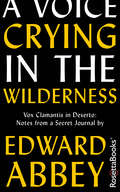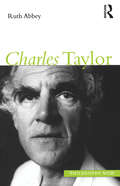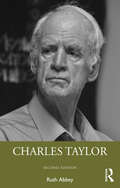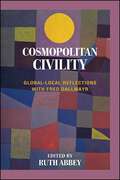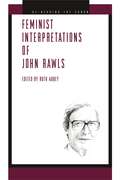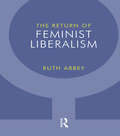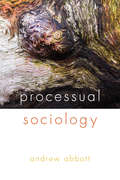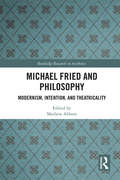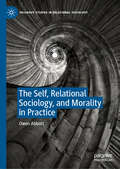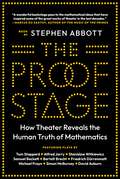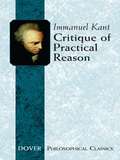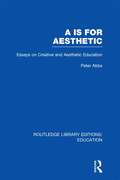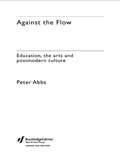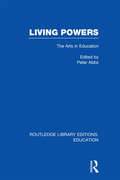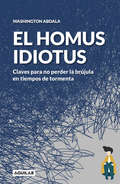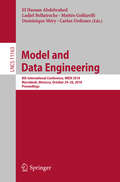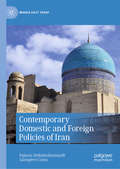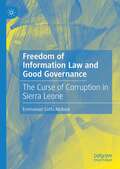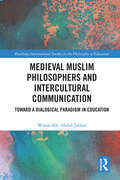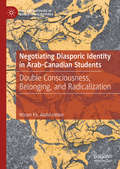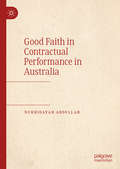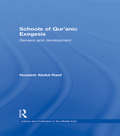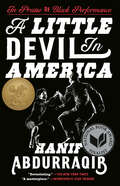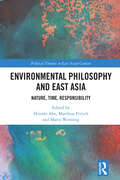- Table View
- List View
A Voice Crying in the Wilderness: Vox Clamantis in Deserto: Notes from a Secret Journal
by Edward AbbeyThoughts on nature, politics, love, and much more—from the environmentalist and author of such classics as Desert Solitaire and The Monkey Wrench Gang. Finished just two weeks before his death, A Voice Crying in the Wilderness is a collection of Edward Abbey&’s observations, both bitingly witty and inspirational, on a wide range of topics—from philosophy and writing to music, money, sex, and sports. Abbey chose each passage himself from his own journals and previous writings—and warns us in his typical humorous style that some of the notes &“may be unconscious plagiarisms from the great and dead (never steal from the living and mediocre).&” Abbey&’s last wish was to be buried in an unmarked grave somewhere out in the vast desert he loved so much. This book is an enduring signal from that desert, through the words of one of the singular American thinkers of our times.
Charles Taylor (Philosophy Now)
by Ruth AbbeyCharles Taylor is one of the most influential and prolific philosophers in the English-speaking world today. The breadth of his writings is unique, ranging from reflections on artificial intelligence to analyses of contemporary multicultural societies. This thought-provoking introduction to Taylor's work outlines his ideas in a coherent and accessible way without reducing their richness and depth. His contribution to many of the enduring debates within Western philosophy is examined and the arguments of his critics assessed. Taylor's reflections on the topics of moral theory, selfhood, political theory and epistemology form the core chapters within the book. Ruth Abbey engages with the secondary literature on Taylor's work and suggests that some criticisms by contemporaries have been based on misinterpretations and suggests ways in which a better understanding of Taylor's work leads to different criticisms of it. The book serves as an ideal companion to Taylor's ideas for students of philosophy and political theory, and will be welcomed by the non-specialist looking for an authoritative guide to Taylor's large and challenging body of work.
Charles Taylor
by Ruth AbbeyCharles Taylor is one of the most influential and prolific philosophers in the English-speaking world. The breadth of his writings is unique, ranging from reflections on artificial intelligence to analyses of contemporary multicultural societies and the role of religion in modern western societies. In this thought-provoking introduction to Taylor's work, Ruth Abbey outlines his ideas in a coherent and accessible way without unduly reducing their richness and depth. Taylor's reflections on the topics of epistemology, language, moral theory, selfhood, political theory, and religion form the core six chapters within the book. Retaining the thematic approach of the first edition, this second edition has been thoroughly revised, rewritten, and restructured. An ideal companion to Taylor's ideas and arguments, Charles Taylor is essential reading for students of philosophy, religion, and political theory, and will be welcomed by the non-specialist looking for an authoritative guide to Taylor's large and challenging body of work.
Cosmopolitan Civility: Global-Local Reflections with Fred Dallmayr
by Ruth AbbeyProlific and pioneering, Fred Dallmayr has been an active scholar for over fifty years. His research interests include modern and contemporary political theory, hermeneutics, phenomenology, the Frankfurt School, continental political thought, democratic theory, multiculturalism, environmentalism, and cosmopolitanism. Dallmayr is also one of the founders of comparative political thought and his interest in non-Western political theory spans Chinese, Islamic, Indian, Buddhist, and Latin American traditions. In emulation of the vast interdisciplinary and international character of Dallmayr's work, this book draws upon senior and emerging scholars from an array of disciplines and countries, with essays that are philosophical (in the Western and non-Western traditions), cultural and/or political, and international. Dallmayr himself responds to the essays in a concluding chapter.
Feminist Interpretations of John Rawls: Feminist Interpretations Of John Rawls (Re-Reading the Canon)
by Ruth AbbeyIn Feminist Interpretations of John Rawls, Ruth Abbey collects eight essays responding to the work of John Rawls from a feminist perspective. An impressive introduction by the editor provides a chronological overview of English-language feminist engagements with Rawls from his Theory of Justice onward. Abbey surveys the range of issues canvassed by feminist readers of Rawls, as well as critics’ wide disagreement about the value of Rawls’s corpus for feminist purposes. The eight essays that follow testify to the continuing ambivalence among feminist readers of Rawls. From the perspectives of political theory and moral, social, and political philosophy, the contributors address particular aspects of Rawls’s work and apply it to a variety of worldly practices relating to gender inequality and the family, to the construction of disability, to justice in everyday relationships, and to human rights on an international level. The overall effect is to give a sense of the broad spectrum of possible feminist critical responses to Rawls, ranging from rejection to adoption.Aside from the editor, the contributors are Amy R. Baehr, Eileen Hunt Botting, Elizabeth Brake, Clare Chambers, Nancy J. Hirschmann, Anthony Simon Laden, Janice Richardson, and Lisa H. Schwartzman.
Feminist Interpretations of John Rawls (Re-Reading the Canon)
by Ruth AbbeyIn Feminist Interpretations of John Rawls, Ruth Abbey collects eight essays responding to the work of John Rawls from a feminist perspective. An impressive introduction by the editor provides a chronological overview of English-language feminist engagements with Rawls from his Theory of Justice onward. Abbey surveys the range of issues canvassed by feminist readers of Rawls, as well as critics’ wide disagreement about the value of Rawls’s corpus for feminist purposes. The eight essays that follow testify to the continuing ambivalence among feminist readers of Rawls. From the perspectives of political theory and moral, social, and political philosophy, the contributors address particular aspects of Rawls’s work and apply it to a variety of worldly practices relating to gender inequality and the family, to the construction of disability, to justice in everyday relationships, and to human rights on an international level. The overall effect is to give a sense of the broad spectrum of possible feminist critical responses to Rawls, ranging from rejection to adoption.Aside from the editor, the contributors are Amy R. Baehr, Eileen Hunt Botting, Elizabeth Brake, Clare Chambers, Nancy J. Hirschmann, Anthony Simon Laden, Janice Richardson, and Lisa H. Schwartzman.
The Return of Feminist Liberalism
by Ruth AbbeyWhile it is uncontroversial to point to the liberal roots of feminism, a major issue in English-language feminist political thought over the last few decades has been whether feminism's association with liberalism should be relegated to the past. Can liberalism continue to serve feminist purposes? This book examines the positions of three contemporary feminists - Martha Nussbaum, Susan Moller Okin and Jean Hampton - who, notwithstanding decades of feminist critique, are unwilling to give up on liberalism. This book examines why, and in what ways, each of these theorists believes that liberalism offers the normative and political resources for the improvement of women's situations. It also brings out and tries to explain and evaluate the differences among them, notwithstanding their shared allegiance to liberalism. In so doing, the books goes to the heart of recent debates in feminist and political theory.
Processual Sociology
by Andrew AbbottFor the past twenty years, noted sociologist Andrew Abbott has been developing what he calls a processual ontology for social life. In this view, the social world is constantly changing--making, remaking, and unmaking itself, instant by instant. He argues that even the units of the social world--both individuals and entities--must be explained by these series of events rather than as enduring objects, fixed in time. This radical concept, which lies at the heart of the Chicago School of Sociology, provides a means for the disciplines of history and sociology to interact with and reflect on each other. In Processual Sociology, Abbott first examines the endurance of individuals and social groups through time and then goes on to consider the question of what this means for human nature. He looks at different approaches to the passing of social time and determination, all while examining the goal of social existence, weighing the concepts of individual outcome and social order. Abbott concludes by discussing core difficulties of the practice of social science as a moral activity, arguing that it is inescapably moral and therefore we must develop normative theories more sophisticated than our current naively political normativism. Ranging broadly across disciplines and methodologies, Processual Sociology breaks new ground in its search for conceptual foundations of a rigorously processual account of social life.
Michael Fried and Philosophy: Modernism, Intention, and Theatricality (Routledge Research in Aesthetics)
by Mathew AbbottThis volume brings philosophers, art historians, intellectual historians, and literary scholars together to argue for the philosophical significance of Michael Fried’s art history and criticism. It demonstrates that Fried’s work on modernism, artistic intention, the ontology of art, theatricality, and anti-theatricality can throw new light on problems in and beyond philosophical aesthetics. Featuring an essay by Fried and articles from world-leading scholars, this collection engages with philosophical themes from Fried’s texts, and clarifies the relevance to his work of philosophers such as Ludwig Wittgenstein, Stanley Cavell, Morris Weitz, Elizabeth Anscombe, Arthur Danto, George Dickie, Immanuel Kant, Friedrich Schiller, G. W. F. Hegel, Arthur Schopenhauer, Friedrich Nietzsche, Denis Diderot, Maurice Merleau-Ponty, Roland Barthes, Jacques Rancière, and Søren Kierkegaard. As it makes a case for the importance of Fried for philosophy, this volume contributes to current debates in analytic and continental aesthetics, philosophy of action, philosophy of history, political philosophy, modernism studies, literary studies, and art theory.
The Self, Relational Sociology, and Morality in Practice (Palgrave Studies in Relational Sociology)
by Owen AbbottProviding a theory of moral practice for a contemporary sociological audience, Owen Abbott shows that morality is a relational practice achieved by people in their everyday lives. He moves beyond old dualisms—society versus the individual, social structure versus agency, body versus mind—to offer a sociologically rigorous and coherent theory of the relational constitution of the self and moral practice, which is both shared and yet enacted from an individualized perspective. In so doing, The Self, Relational Sociology, and Morality in Practice not only offers an urgently needed account of moral practice and its integral role in the emergence of the self, but also examines morality itself within and through social relations and practices. Abbott’s conclusions will be of interest to social scientists and philosophers of morality, those working with pragmatic and interactionist approaches, and those involved with relational sociology and social theory.
The Proof Stage: How Theater Reveals the Human Truth of Mathematics
by Stephen AbbottHow playwrights from Alfred Jarry and Samuel Beckett to Tom Stoppard and Simon McBurney brought the power of abstract mathematics to the human stageThe discovery of alternate geometries, paradoxes of the infinite, incompleteness, and chaos theory revealed that, despite its reputation for certainty, mathematical truth is not immutable, perfect, or even perfectible. Beginning in the last century, a handful of adventurous playwrights took inspiration from the fractures of modern mathematics to expand their own artistic boundaries. Originating in the early avant-garde, mathematics-infused theater reached a popular apex in Tom Stoppard’s 1993 play Arcadia. In The Proof Stage, mathematician Stephen Abbott explores this unlikely collaboration of theater and mathematics. He probes the impact of mathematics on such influential writers as Alfred Jarry, Samuel Beckett, Bertolt Brecht, and Stoppard, and delves into the life and mathematics of Alan Turing as they are rendered onstage. The result is an unexpected story about the mutually illuminating relationship between proofs and plays—from Euclid and Euripides to Gödel and Godot.Theater is uniquely poised to discover the soulful, human truths embedded in the austere theorems of mathematics, but this is a difficult feat. It took Stoppard twenty-five years of experimenting with the creative possibilities of mathematics before he succeeded in making fractal geometry and chaos theory integral to Arcadia’s emotional arc. In addition to charting Stoppard’s journey, Abbott examines the post-Arcadia wave of ambitious works by Michael Frayn, David Auburn, Simon McBurney, Snoo Wilson, John Mighton, and others. Collectively, these gifted playwrights transform the great philosophical upheavals of mathematics into profound and sometimes poignant revelations about the human journey.
Critique of Practical Reason
by Thomas Kingsmill Abbott Immanuel KantThe second of Kant's three critiques, Critique of Practical Reason forms the center of Kantian philosophy; published in 1788, it is bookended by his Critique of Pure Reason and Critique of Judgement. With this work Kant establishes his role as a vindicator of the truth of Christianity; he approaches his proof by presenting positive affirmation of the immortality of the soul and the existence of God. The philosopher offers an argument concerning the summum bonum of life: people should not simply search after happiness, but follow the moral law and seek to become worthy of the happiness that God can bestow.This Critique comprises three sections: the Analytic, the Dialectic, and the Doctrine of Method. The Analytic defines the ultimate moral principle, the categorical imperative, and argues that to obey it is to exercise a freedom. The Dialectic make the assumption that immortality and God exist, arguing that pure practical reason falls into error when it expects perfection in this world; we should anticipate finding perfection in the next world, with God's help. The final section, the Doctrine of Method, offers suggestions in educating people in the use of pure practical reason.A seminal text in the history of moral philosophy, this volume offers the most complete statement of Kant's theory of free will and a full development of his practical metaphysics.
Aa is for Aesthetic: Essays on Creative and Aesthetic Education (Routledge Library Editions: Education)
by Peter AbbsThis volume reaffirms the indispensable place of the arts in any coherent curriculum. The author hopes that the specific arguments formulated in the book will advance the conservationist post-Modernist aesthetic.
Against the Flow: Education, the Art and Postmodern Culture
by Peter AbbsAt once provocative and inspiring, Against the Flow is a work of polemic from an internationally respected writer and thinker on arts education. Peter Abbs argues that contemporary education ignores the aesthetic and ethical as a result of being in thrall to such forces as the market economy and managerial and functional dictates. He identifies the present education system as being inimical to creativity and authentic learning and instead, narrowly focused on the quantitative measuring of results. This absence of a creative and ethical dimension in education has implications for art making in wider society. Art is shown as emerging from, and appealing to, the ironic postmodernist sensibility and mass media-led culture, while being devoid of philosophical significance.This book opens up a fresh and timely debate about the vital power of creativity in modern education. Drawing on examples from modern poetry, literature and visual art, it is an eloquent and passionate argument for the need to develop ethical and aesthetic energies to confront the growing vacuity of contemporary culture.
Living Powers: The Arts in Education (Routledge Library Editions: Education)
by Peter AbbsWhen originally published this was the first book to offer a collective history of all the arts – Art, Drama, Dance, Music, Literature and Film – in the curriculum. It also offers a coherent framework for the teaching of arts which is in line with the best current trends since the Gulbenkian Report of 1982. It insists that the arts, seen together should be an essential part of the national curriculum.
El homus idiotus
by Washington AbdalaDecir que vivimos en tiempos convulsionados es noticia de ayer. Estamos navegando sin brújula en un océano de información, expuestos a las agresiones del marketing extremista, indefensos ante un entorno que desconocemos o apenas comprendemos, aferrados al teléfono móvil como única vía de contacto con el otro. En este escenario cambiante e incierto, Washington Abdala nos invita a reflexionar sobre nosotros mismos y el vértigo en el que transcurre nuestra vida. Los relatos que orientaban nuestros vínculos en sociedad han cambiado dramáticamente, pero ¿han sido sustituidos por otros más adecuados? Las redes virtuales como espacio de socialización, la información que nos llega en exceso, pero no se convierte en conocimiento, la banalización de la oposición de ideas, la búsqueda de la aprobación a cualquier costo, la glorificación de la juventud, las grandes superficies como ideal del entretenimiento, son fenómenos que desfilan ante nuestros incrédulos ojos, cuestionándonos como sociedad y como individuos. Con un estilo atrapante, vertiginoso y empático, Abdala nos desafía a acompañarlo en un recorrido por nuestra cotidianidad, y nos alienta a tomar distancia y mirarla con ojos más críticos.
Model and Data Engineering: 8th International Conference, MEDI 2018, Marrakesh, Morocco, October 24–26, 2018, Proceedings (Lecture Notes in Computer Science #11163)
by El Hassan Abdelwahed Ladjel Bellatreche Mattéo Golfarelli Dominique Méry Carlos OrdonezThis book constitutes the refereed proceedings of the 8h International Conference on Model and Data Engineering, MEDI 2018, held in Marrakesh, Morocco, in October 2018.The 23 full papers and 4 short papers presented together with 2 invited talks were carefully reviewed and selected from 86 submissions. The papers covered the recent and relevant topics in the areas of databases; ontology and model-driven engineering; data fusion, classsification and learning; communication and information technologies; safety and security; algorithms and text processing; and specification, verification and validation.
Contemporary Domestic and Foreign Policies of Iran (Middle East Today)
by Pejman Abdolmohammadi Giampiero CamaThis book is a comprehensive analysis of the domestic and foreign politics of Iran, focusing on its complex nature from political, social and cultural perspectives. It has adopted a multidisciplinary approach, combining comparative politics and intellectual and modern history with international relations. It analyses the institutional structure of the Islamic Republic, the main political and social actors and alliances, as well as Iranian opposition forces both inside and outside the country. The book tries to simplify the seemingly intractable complexity of the Islamic Republic by demystifying it and using political science methods to prove that it is a peculiar hybrid regime.
Freedom of Information Law and Good Governance: The Curse of Corruption in Sierra Leone
by Emmanuel Saffa AbdulaiThis book argues that Sierra Leone’s ten-year civil conflict demonstrates the criticality of freedom of information (FOI) as a facet of good governance where corruption thrives, spanning both public and private sectors, if Sierra Leone’s continued security and stability are to be ensured. It argues that it was the absence of an anti-corruption tool like FOI and its attendants, transparency, and accountability, in governance generally, and in the area of the extractive industry in particular, that lead to other social phenomena which directly sparked the war. It proffers that for the continued consolidation of peace, security, stability and development in Sierra Leone, transparency and accountability must be ensured by protecting and implementing the demand driven anti-graft FOI.Straddling the disciplines of law, political science, public policy, and history, the book’s major premise is that it was the absence of FOI in the area of governance and the extractive industry, which enabled politicians, civil servants and the politically connected to ransom and exploit Sierra Leone’s mineral resources for their own profit with impunity, a state of affairs which led to underdevelopment, state collapse and an embittered civil populace especially the youth. The book postulates that as such any attempt to ensure long-term peace in Sierra Leone, should seek to avoid replicating the conditions that gave rise to that gruesome conflict- elites expropriation of national resources through endemic graft. The book proposes the comprehensive and effective implementation of the Right to Information Act 2013.
Medieval Muslim Philosophers and Intercultural Communication: Towards a Dialogical Paradigm in Education (Routledge International Studies in the Philosophy of Education)
by Wisam Kh. Abdul-JabbarThis book examines the works of Medieval Muslim philosophers interested in intercultural encounters and how receptive Islam is to foreign thought, to serve as a dialogical model, grounded in intercultural communications, for Islamic and Arabic education. The philosophers studied in this project were instructors, tutors, or teachers, such as Al-Kindi, Al-Farabi, Al-Ghazali, and Averroes, whose philosophical contributions directly or indirectly advanced intercultural learning. The book describes and provides examples of how each of these philosophers engaged with intercultural encounters, and asks how their philosophies can contribute to infusing intercultural ethics and practices into curriculum theorizing. First, it explores selected works of medieval Muslim philosophers from an intercultural perspective to formulate a dialogical paradigm that informs and enriches Muslim education. Second, it frames intercultural education as a catalyst to guide Muslim communities’ interactions and identity construction, encouraging flexibility, tolerance, deliberation, and plurality. Third, it bridges the gap between medieval tradition and modern thought by promoting interdisciplinary connections and redrawing intercultural boundaries outside disciplinary limits. This study demonstrates that the dialogical domain that guides intercultural contact becomes a curriculum-oriented structure with Al-Kindi, a tripartite pedagogical model with Al-Fārābī, a sojourner experience with Al-Ghazali, and a deliberative pedagogy of alternatives with Averroes. Therefore, the book speaks to readers interested in the potential of dialogue in education, intercultural communication, and Islamic thought research. Crucially bridging the gap between medieval tradition and modern thought by promoting interdisciplinary connections and redrawing intercultural boundaries outside disciplinary limits, it will speak to readers interested in the dialogue between education, intercultural communication, and Islamic thought. .
Negotiating Diasporic Identity in Arab-Canadian Students: Double Consciousness, Belonging, and Radicalization (Palgrave Studies in Educational Futures)
by Wisam Kh. Abdul-JabbarThis book, framed through the notion of double consciousness, brings postcolonial constructs to sociopolitical and pedagogical studies of youth that have yet to find serious traction in education. Significantly, this book contributes to a growing interest among educational and curriculum scholars in engaging the pedagogical role of literature in the theorization of an inclusive curriculum. Therefore, this study not only recognizes the potential of immigrant literature in provoking critical conversation on changes young people undergo in diaspora, but also explores how the curriculum is informed by the diasporic condition itself as demonstrated by this negotiation of foreignness between the student and selected texts.
Good Faith in Contractual Performance in Australia
by Nurhidayah AbdullahThis book gives a detailed account of the current state of the law concerning good faith in contractual performance in Australia, through an empirical study on its reception and development across the various Australian jurisdictions.In Australia, good faith received wide attention after Priestly J introduced in his obiter comments in Renard Construction (ME) v Minister for Works (1992) 26 NSWLR 234.This book focuses on the attitude of the judges to good faith, the definition of good faith, and the possibility of legislating a good faith obligation in Australian contract law. This book also discusses the issues surrounding its development, its meaning, and acceptance at the international level.The empirical legal research adopted in this book will offer a significant contribution in understanding the concept of good faith in Australia from the empirical perspective.
Schools of Qur'anic Exegesis: Genesis and Development (Culture and Civilization in the Middle East)
by Hussein Abdul-RaofQur’anic exegesis has become the battleground of political Islam and theological conflict among various Muslim schools of thought. Using comparative and contrastive methodology, examples from the Qur'an are investigated in the light of various theological views to delineate the birth, development and growth of Qur'anic exegesis. The political status quo, in the past and at present, has impinged upon Qur’anic exegesis more than on any other discipline in Islamic studies. This book illustrates the dichotomy between mainstream and non-mainstream Islam, showing how Qur’anic exegesis reflects the subtle dogmatic differences and political cleavages in Islamic thought. Chapters explore in depth the intrusive views of the compilers of early exegesis manuscripts, the scepticism among Western scholars about the authenticity of early Muslim works of exegesis and of prophetic tradition, and the role of exegesis as a tool to reaffirm the Qur’an as a canon. Written to appeal to those with comparative exegetical interests as well as those focused on Islamic studies in general, this book will be an important reference for research students, scholars, and students of Islamic Studies, Theology, Religious studies and Middle Eastern Studies.
A Little Devil in America: Notes in Praise of Black Performance
by Hanif AbdurraqibAt the March on Washington in 1963, Josephine Baker was fifty-seven years old, well beyond her most prolific days. But in her speech she was in a mood to consider her life, her legacy, her departure from the country she was now triumphantly returning to. “I was a devil in other countries, and I was a little devil in America, too,” she told the crowd. Inspired by these few words, Hanif Abdurraqib has written a profound and lasting reflection on how Black performance is inextricably woven into the fabric of American culture. Each moment in every performance he examines—whether it’s the twenty-seven seconds in “Gimme Shelter” in which Merry Clayton wails the words “rape, murder,” a schoolyard fistfight, a dance marathon, or the instant in a game of spades right after the cards are dealt—has layers of resonance in Black and white cultures, the politics of American empire, and Abdurraqib’s own personal history of love, grief, and performance. <p><p> Abdurraqib writes prose brimming with jubilation and pain, infused with the lyricism and rhythm of the musicians he loves. With care and generosity, he explains the poignancy of performances big and small, each one feeling intensely familiar and vital, both timeless and desperately urgent. Filled with sharp insight, humor, and heart, A Little Devil in America exalts the Black performance that unfolds in specific moments in time and space—from midcentury Paris to the moon, and back down again to a cramped living room in Columbus, Ohio.
Environmental Philosophy and East Asia: Nature, Time, Responsibility (Political Theories in East Asian Context)
by Hiroshi Abe Matthias Fritsch Mario WenningThis book explores the contributions of East Asian traditions, particularly Buddhism and Daoism, to environmental philosophy in dialogue with European philosophy. It critically examines the conceptions of human responsibility toward nature and across time presented within these traditions.The volume rethinks human relationships to the natural world by focusing on three main themes: Daoist and Eurodaoist perspectives on nature, human responsibility toward nature, and Buddhist perspectives on life and nature. By way of discussing East Asian traditions and European thinkers, this collection reveals that the impact of humanity on the environment is shaped not only by distinctive modes of economic production, but also by cultural beliefs and practices. Representing a unique constellation of environmental and intercultural philosophy, the contributions present systematic approaches to the global need for cultivating environmental responsibility across cultures and generations to address the political, ethical, and aesthetic challenges arising from humanity’s transformative impact on the natural world.Presenting a critical re-evaluation of human relationships to the natural world in dialogue with East Asian traditions, this will be a valuable resource for students and scholars of Philosophy, Environmental Studies and Asian Studies.
